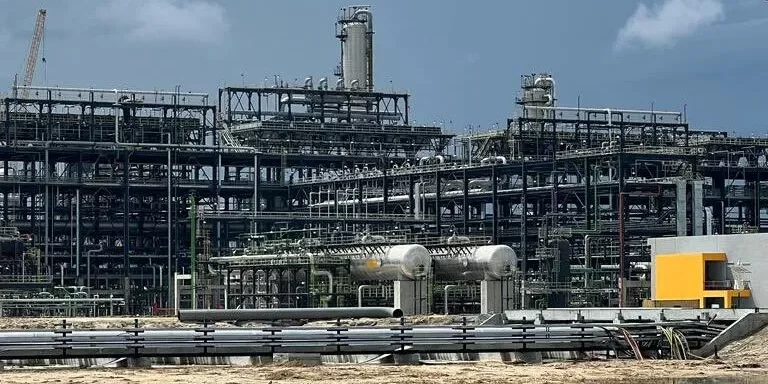In an uncommon move for an oil-producing nation, Nigeria—a significant net exporter of petroleum—imported 47,000 barrels of US crude oil per day in 2024.
Experts attribute this shift to the operations of the Dangote Petroleum Refinery and changing global crude trade patterns.
The emergence of the Dangote Petroleum Refinery, the world’s largest single-train refinery with a capacity of 650,000 barrels per day, has altered Nigeria’s crude supply dynamics.
In 2024, the refinery turned to international markets, including the United States, for crude oil supplies.
Local oil majors were reportedly unwilling or unable to provide sufficient quantities of domestically produced crude, citing higher prices or unavailability.
This forced the Dangote Refinery to import more expensive crude, including significant volumes of US West Texas Intermediate (WTI).
The first shipment of US WTI crude to the Dangote Refinery arrived in November 2024, further increasing Nigeria’s reliance on imported oil.
The Nigerian National Petroleum Company Limited (NNPCL) struggled to meet the refinery’s demand, compounding the need for external sources.
This surge in US imports also highlights the broader effects of global trade disruptions, including sanctions on Russian oil, which have reconfigured crude oil flows worldwide.
In October 2024, Nigerian billionaire Aliko Dangote announced plans to begin crude oil exploration, aiming to reduce reliance on imported oil. Initially scheduled for late 2024, Dangote’s crude production is now set to commence in 2025.
This decision followed months of negotiations with Nigerian officials over crude delivery to the refinery. Dangote’s exploration efforts are expected to provide a more reliable supply of crude for the refinery, mitigating future disruptions.
The increased demand for crude from local refineries may help NNPCL meet its crude-for-loan obligations until 2029.
These obligations, tied to financial commitments, have limited the company’s ability to supply domestic refineries adequately.
The reliance on imported crude and the Dangote Refinery’s prominence reflect challenges in Nigeria’s oil sector, including underinvestment, logistical inefficiencies, and debt burdens.
However, the refinery’s operations and Dangote’s exploration plans signal a potential shift toward greater self-sufficiency in fuel production.
As Nigeria navigates these changes, the country’s oil trade patterns and economic strategies will continue to evolve, impacting both local and global markets.
![]()




